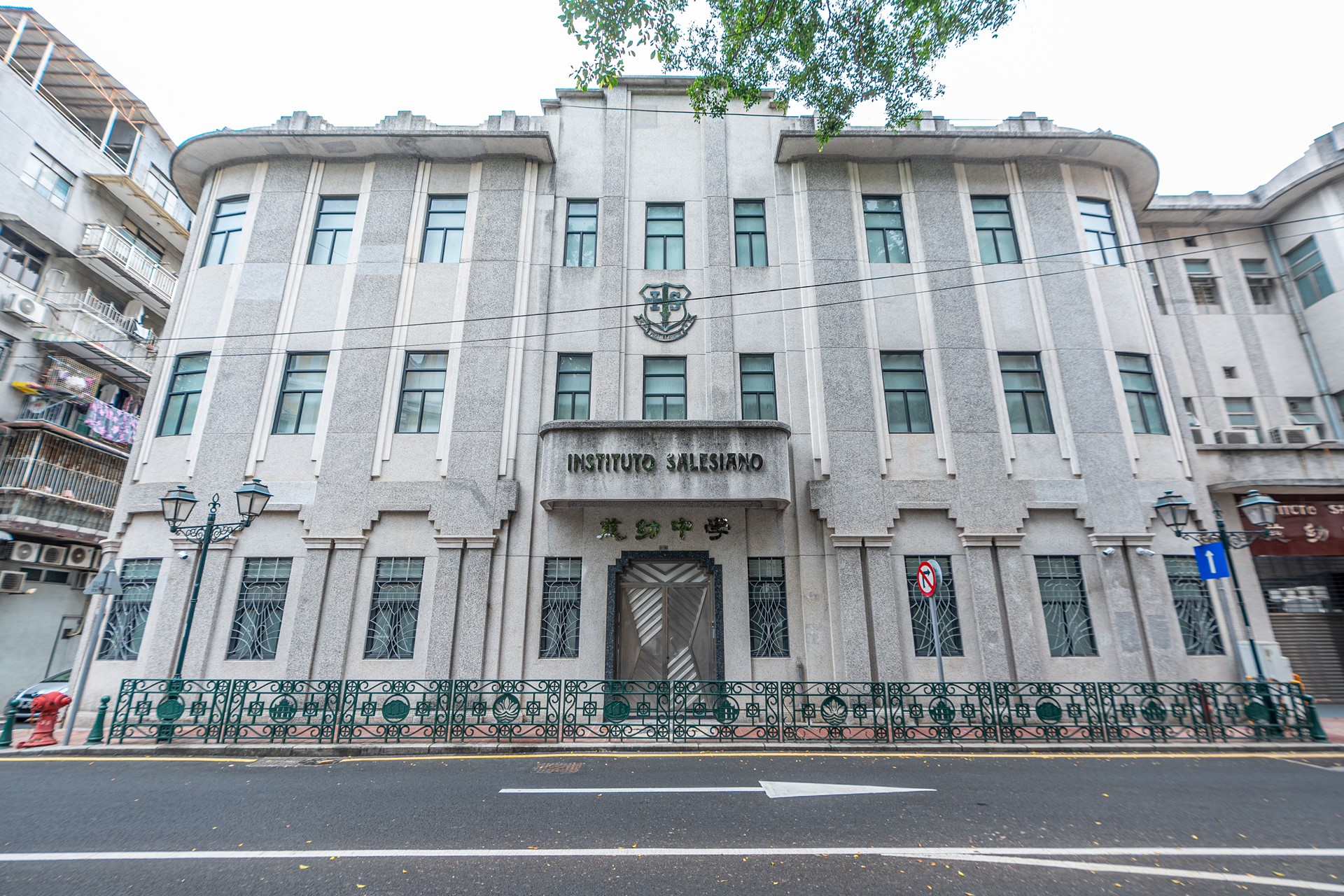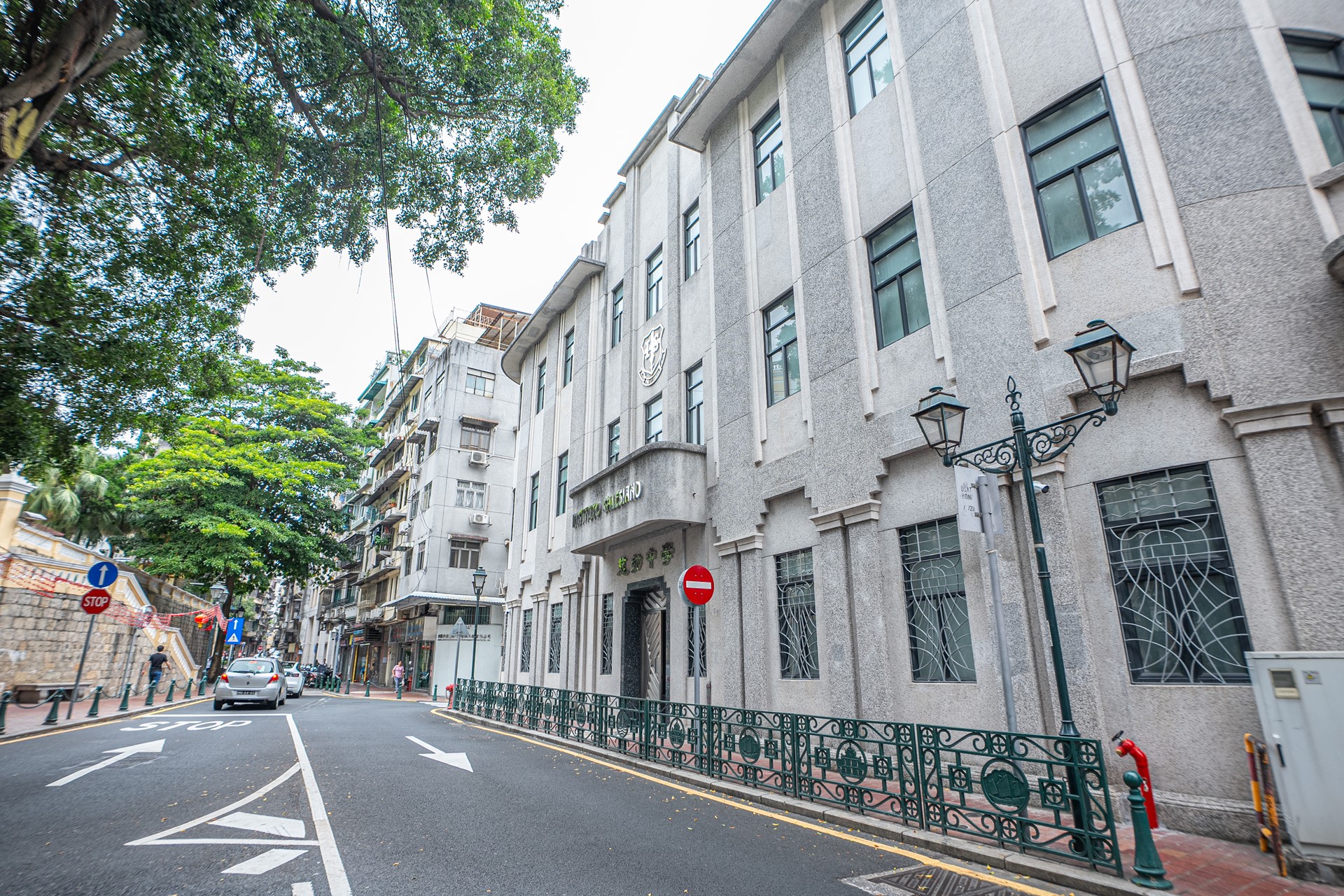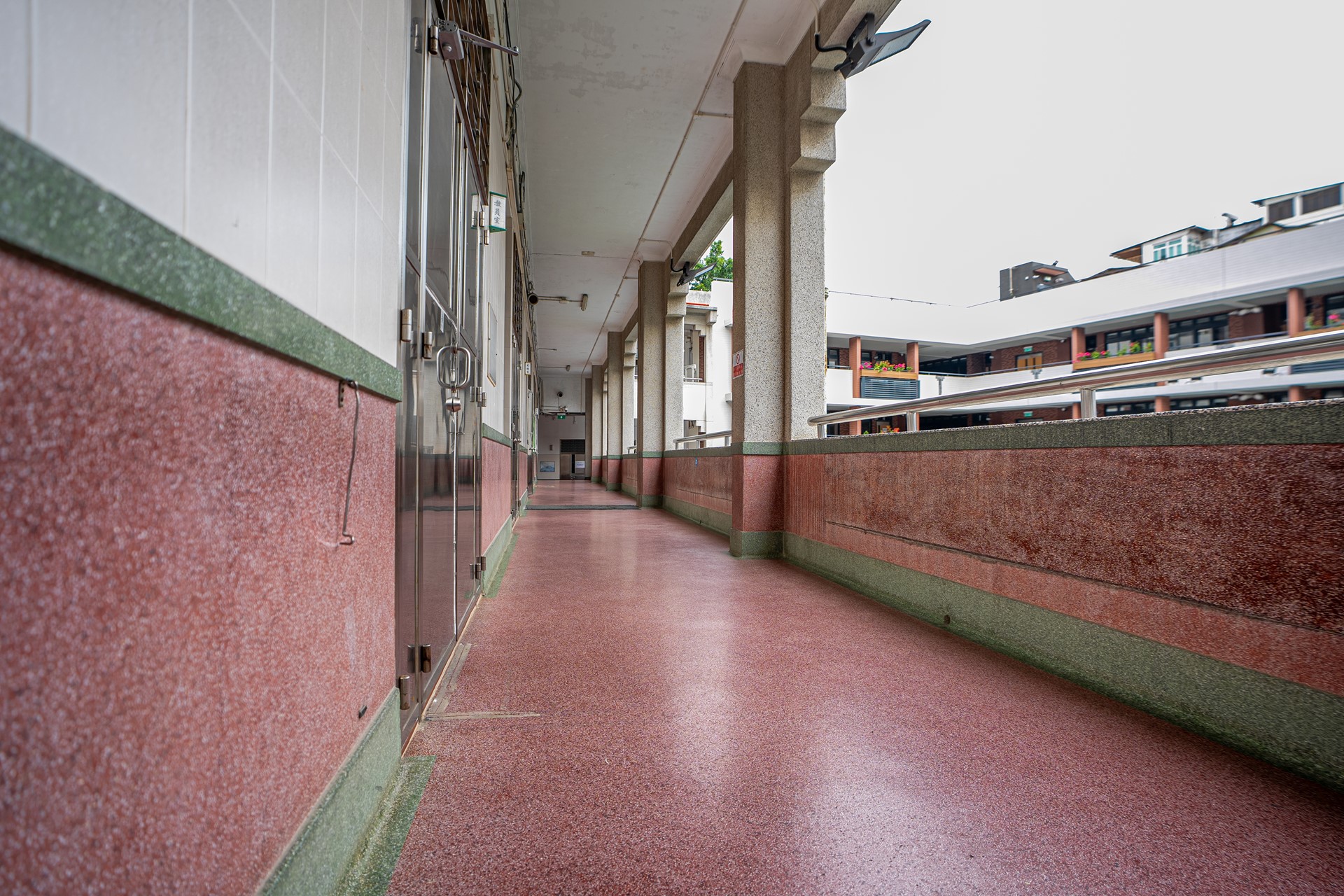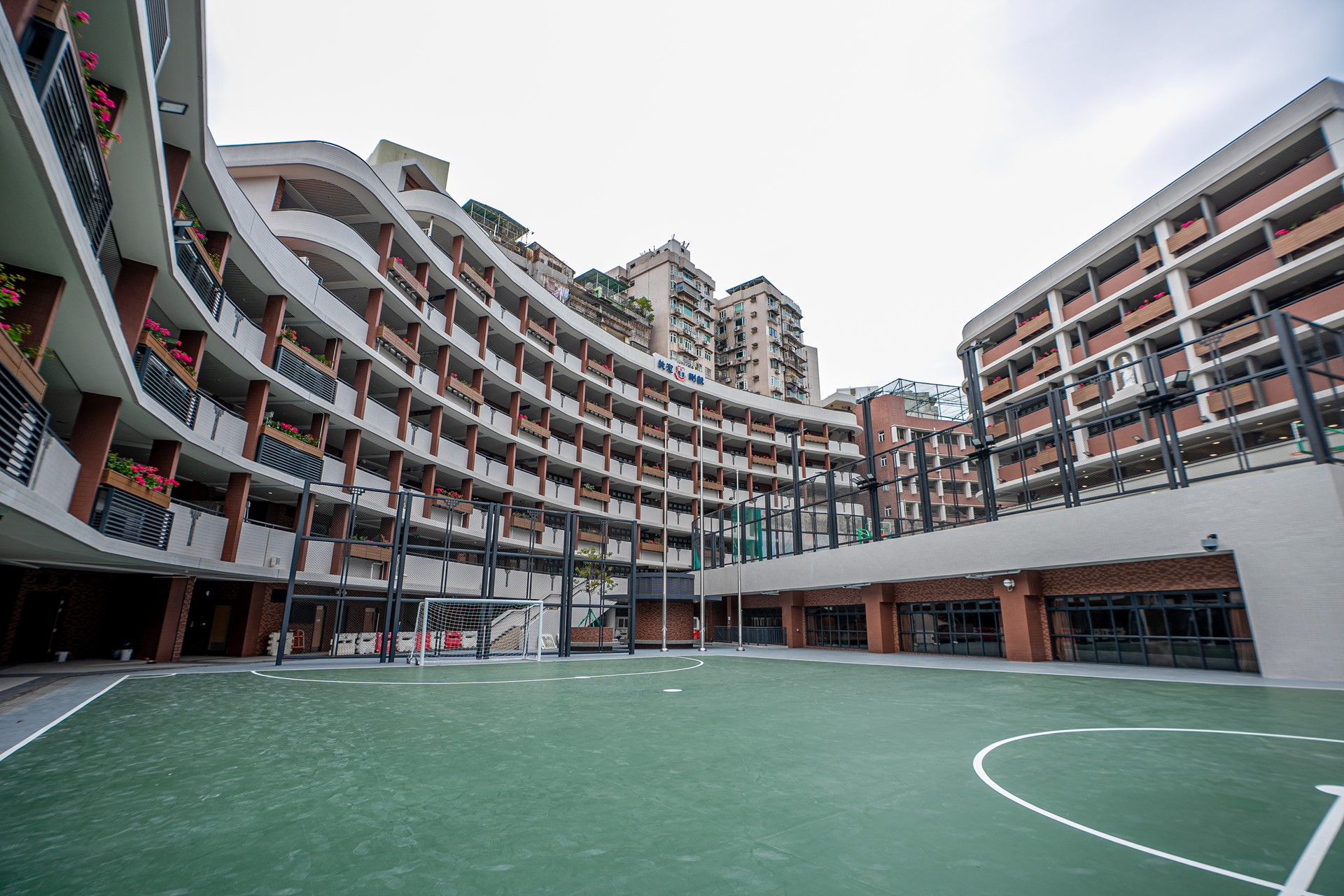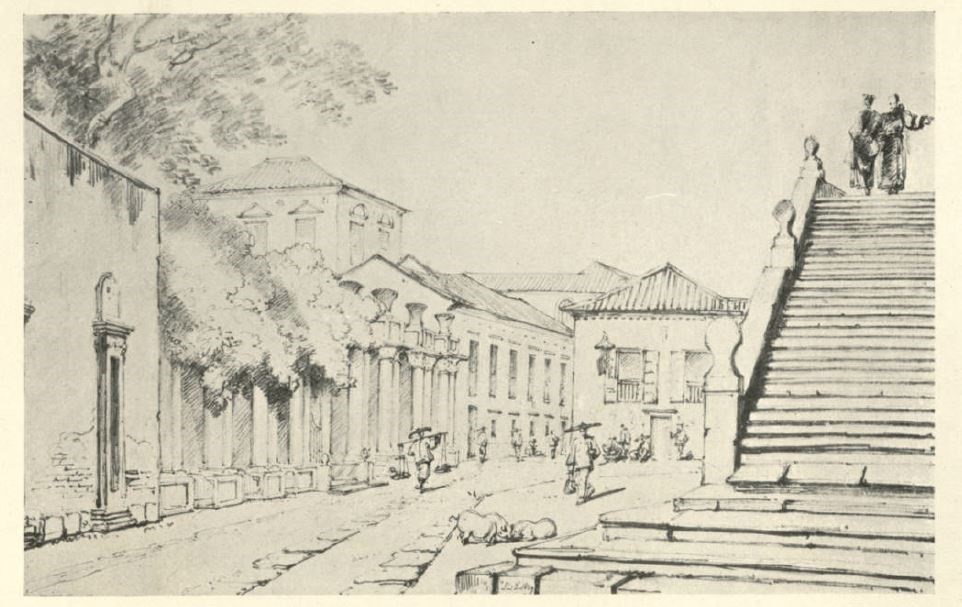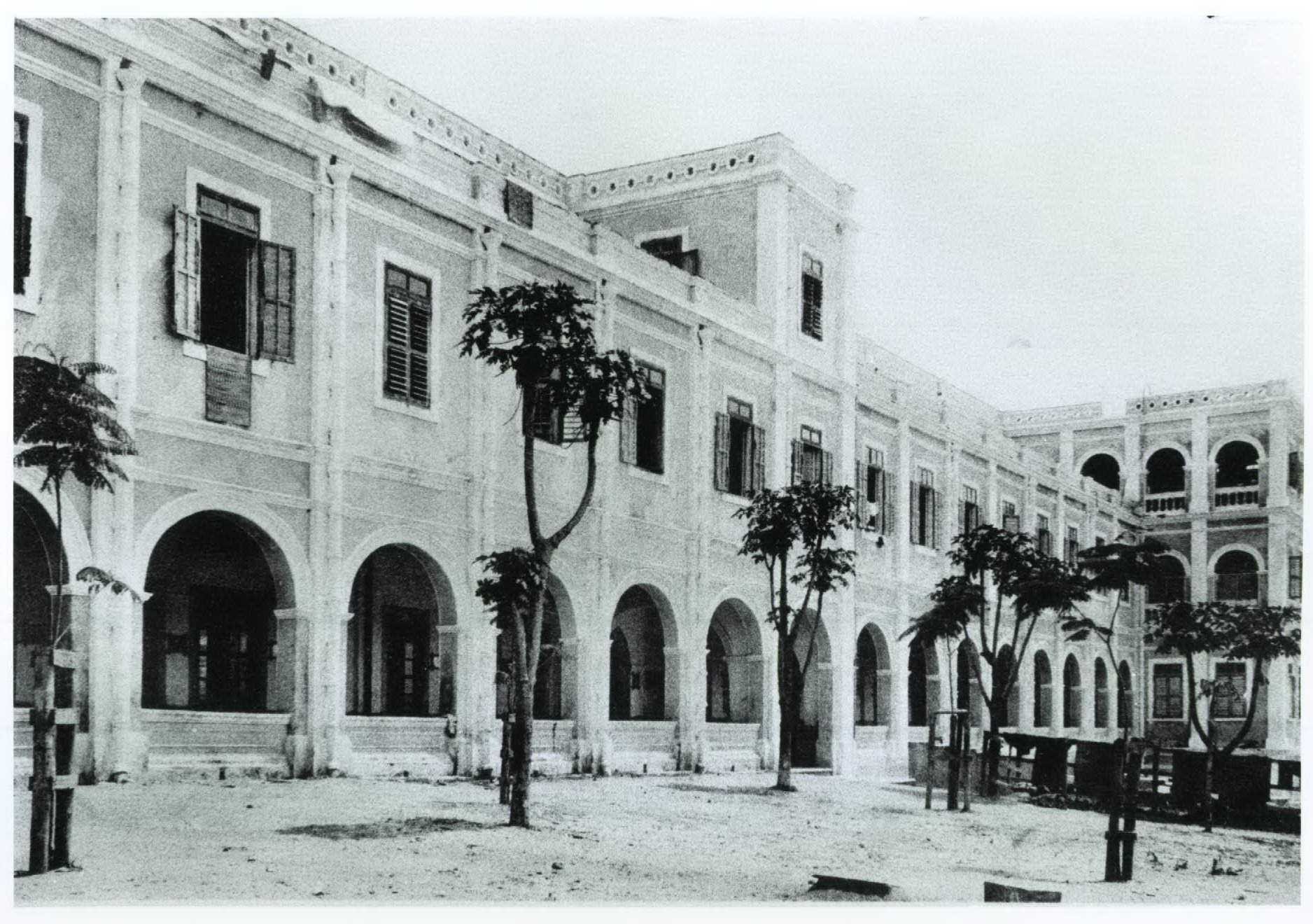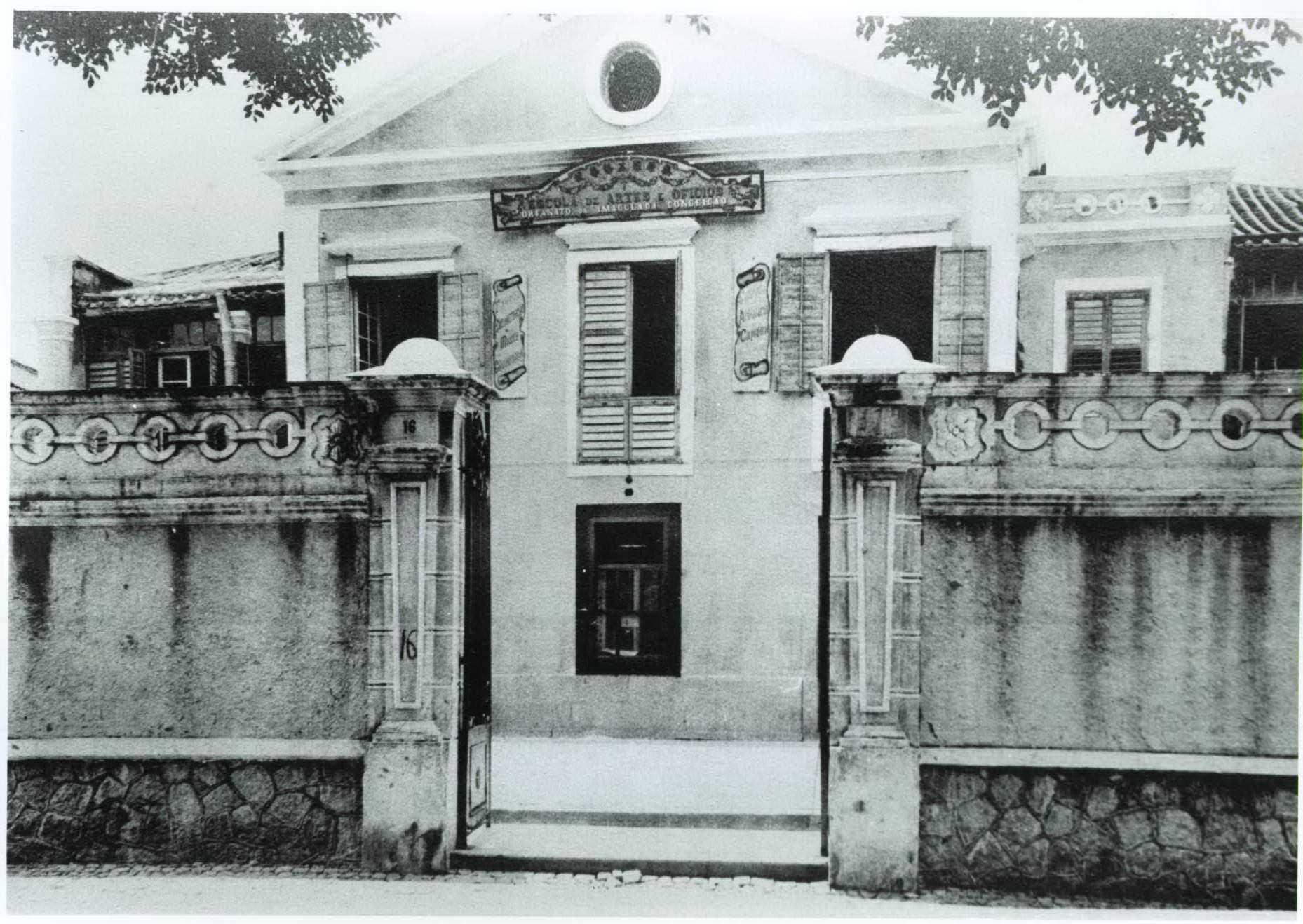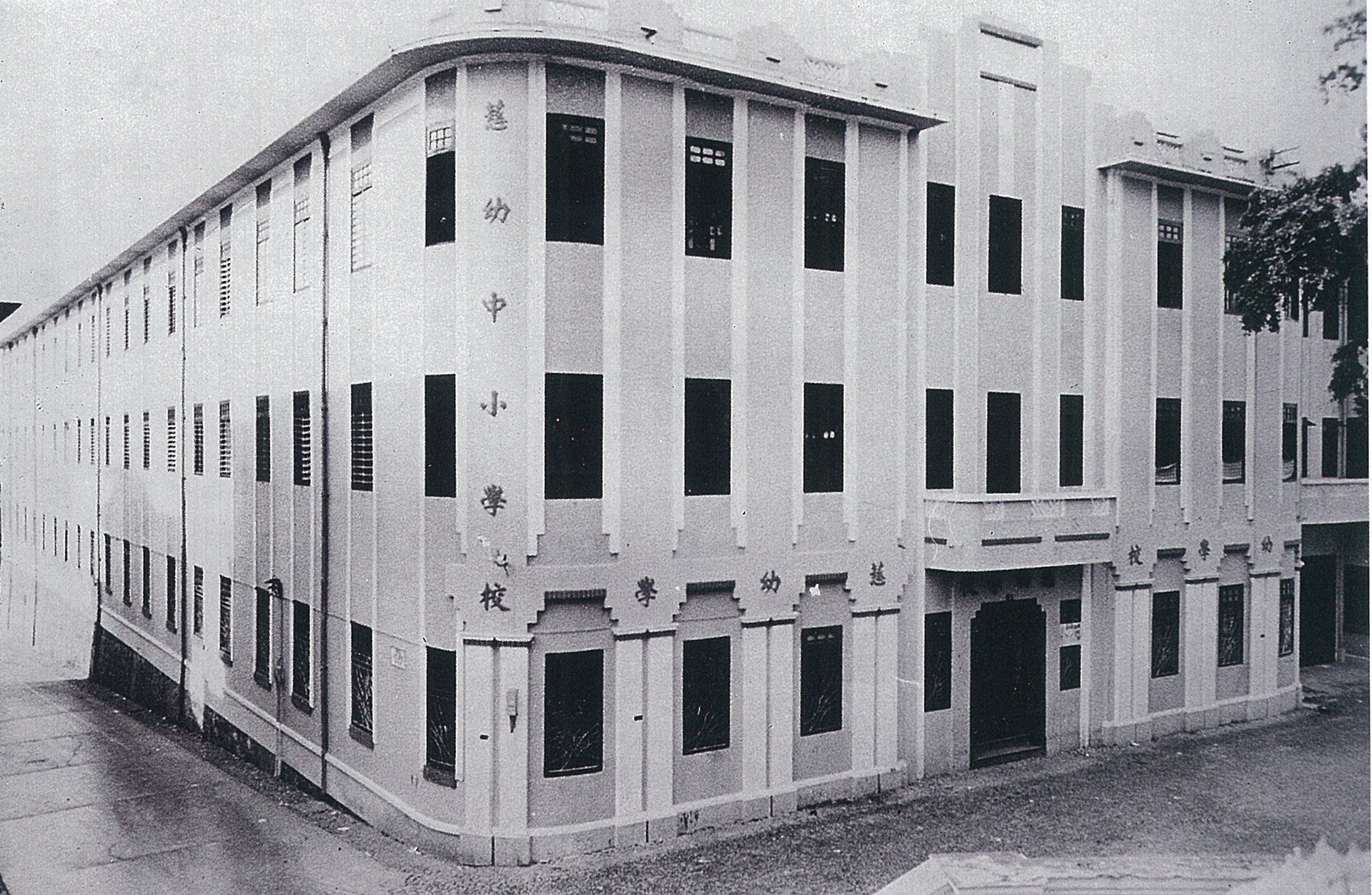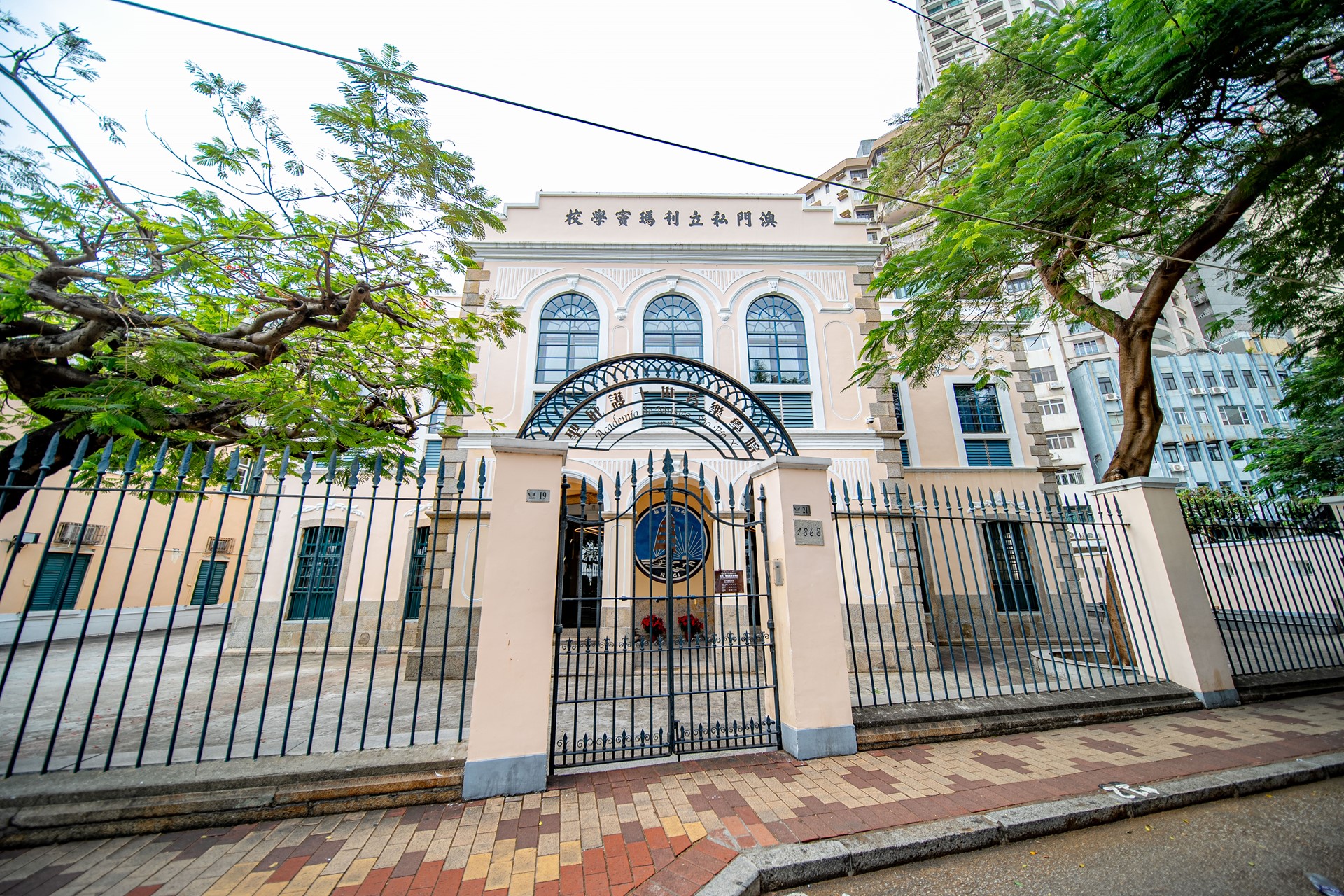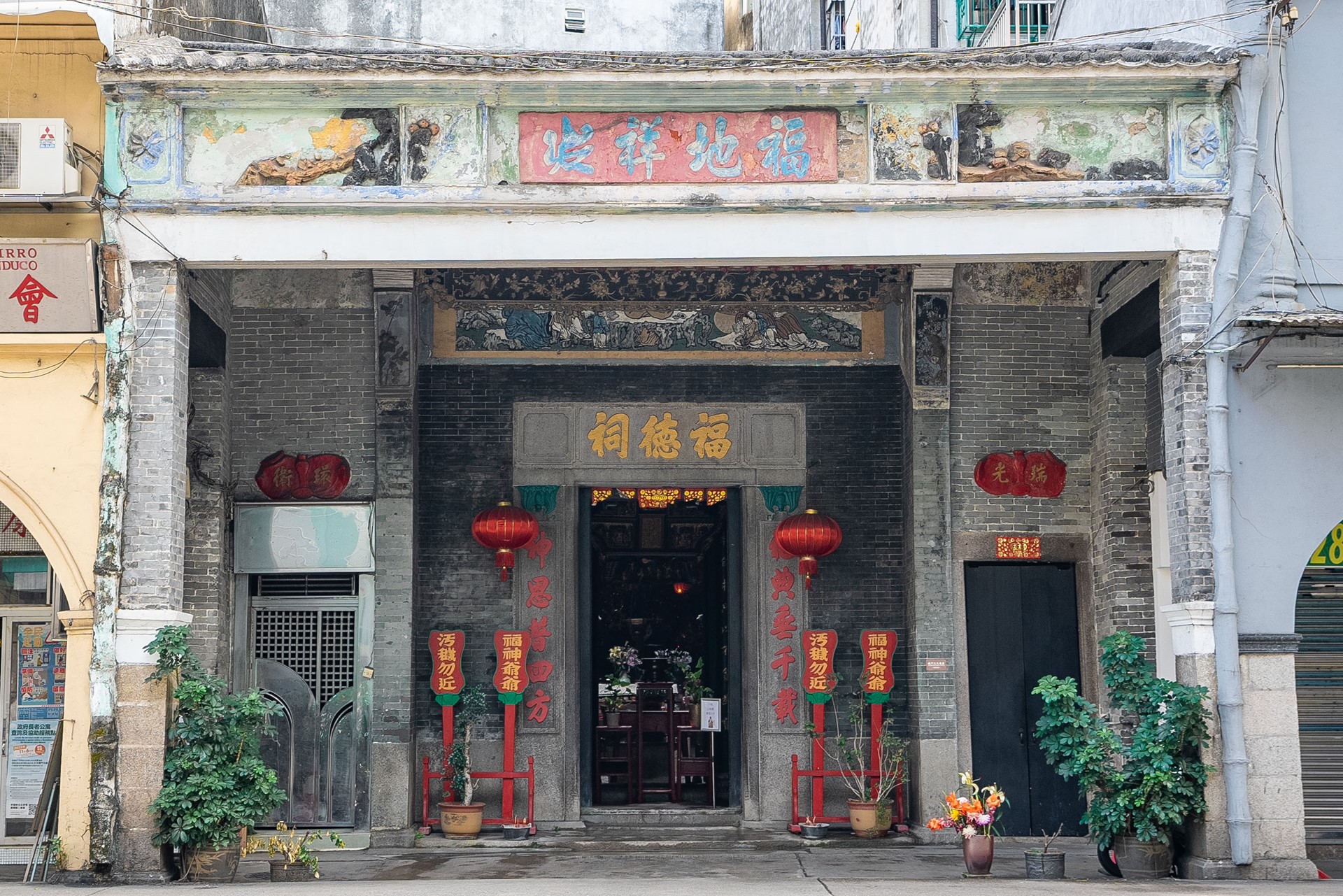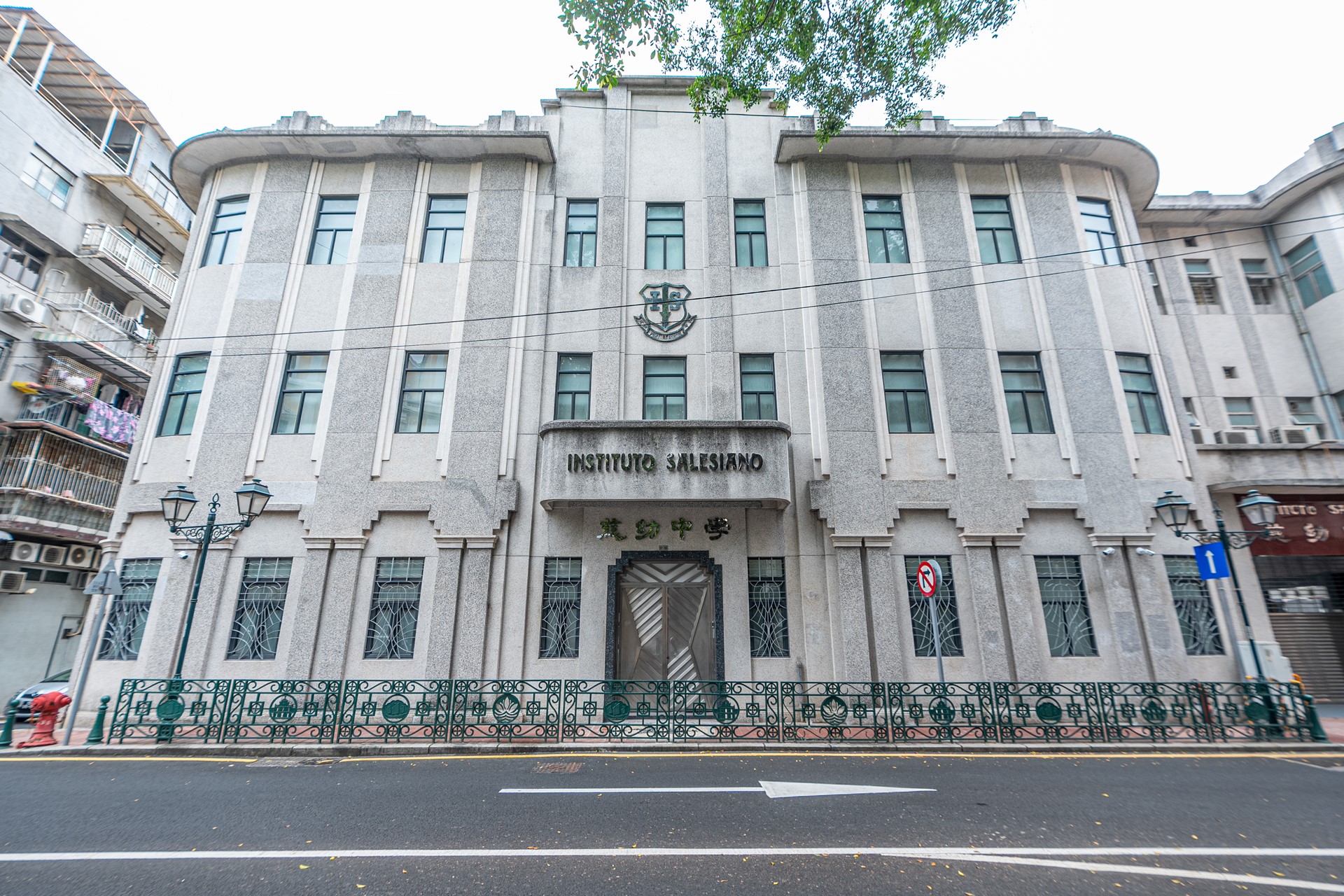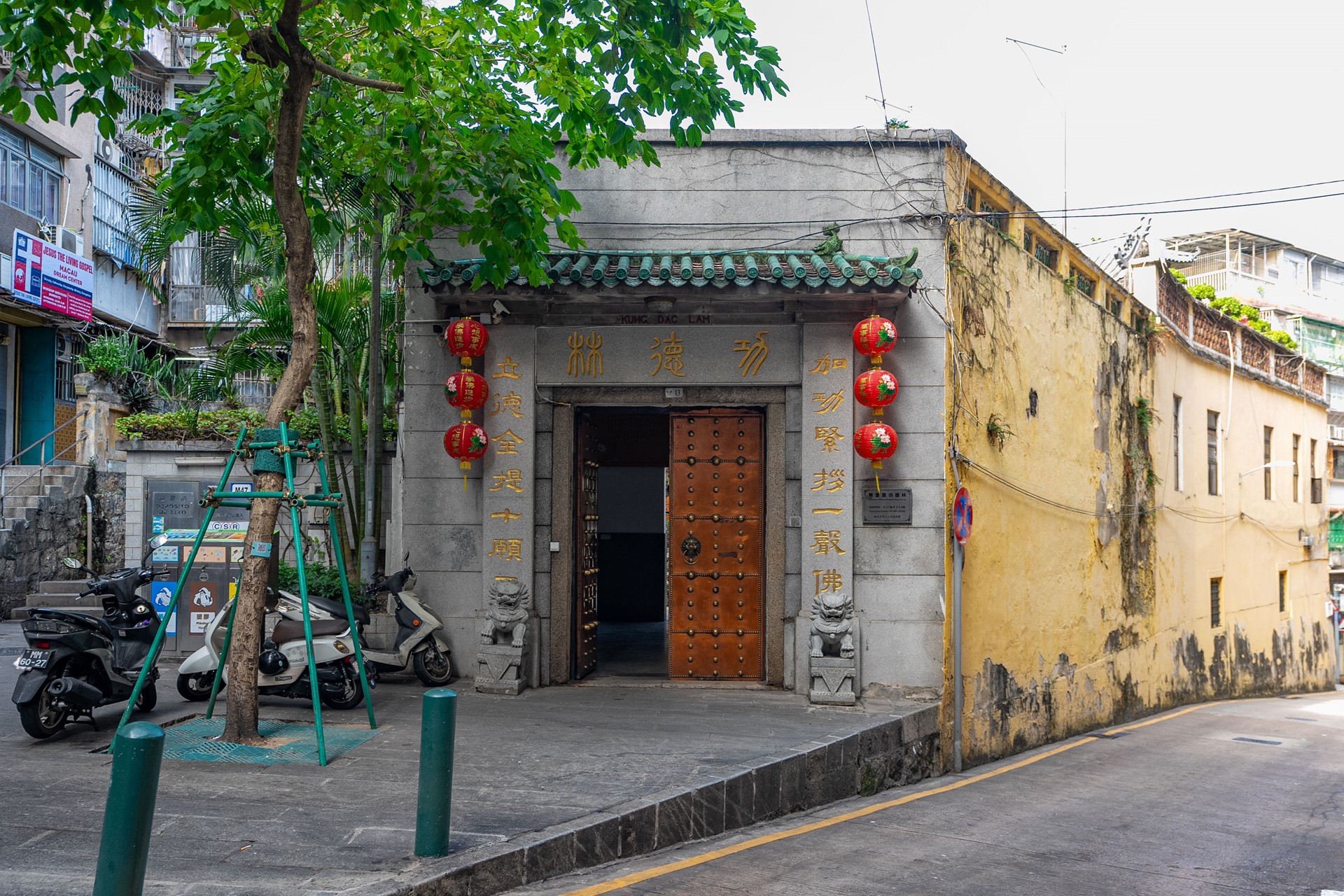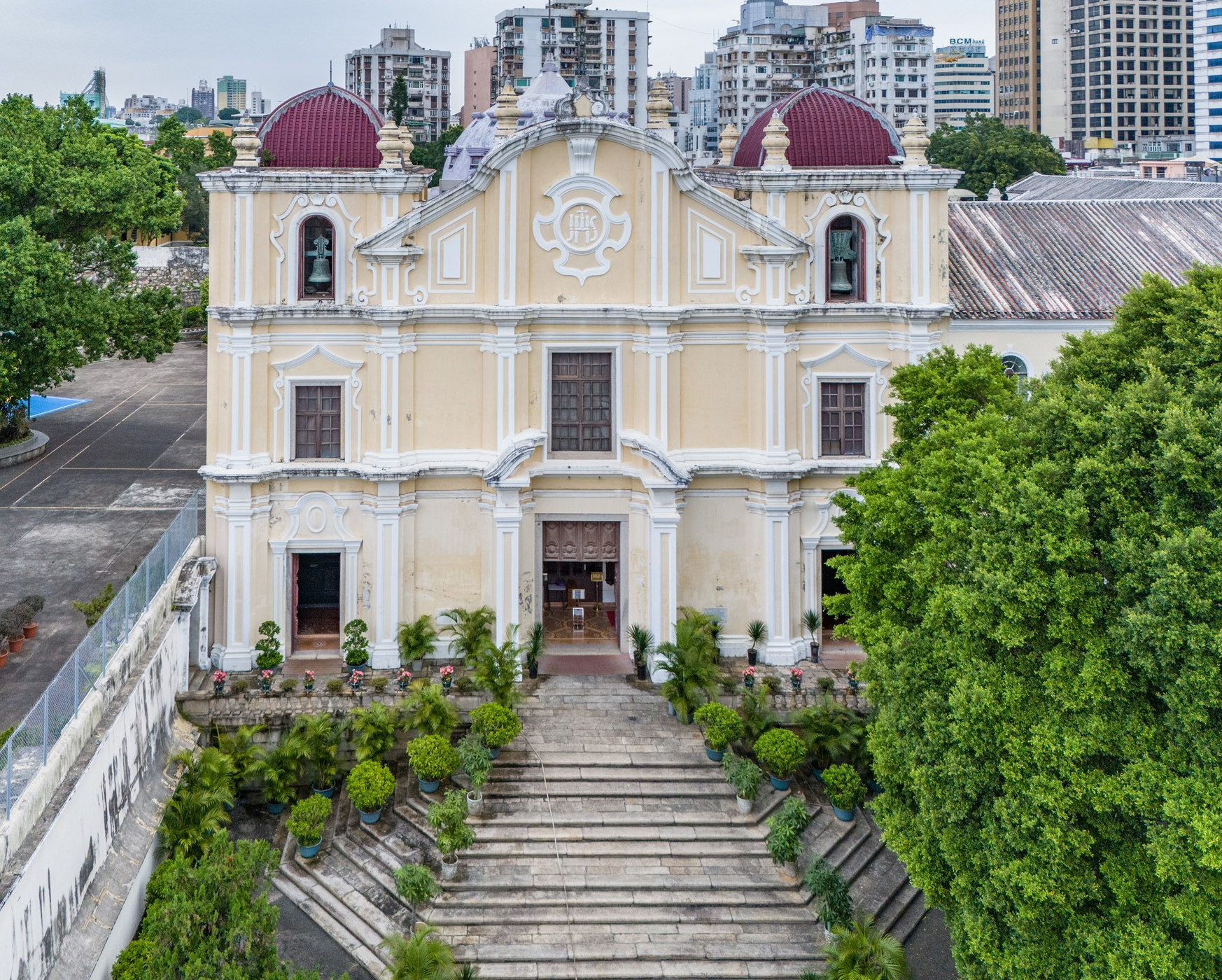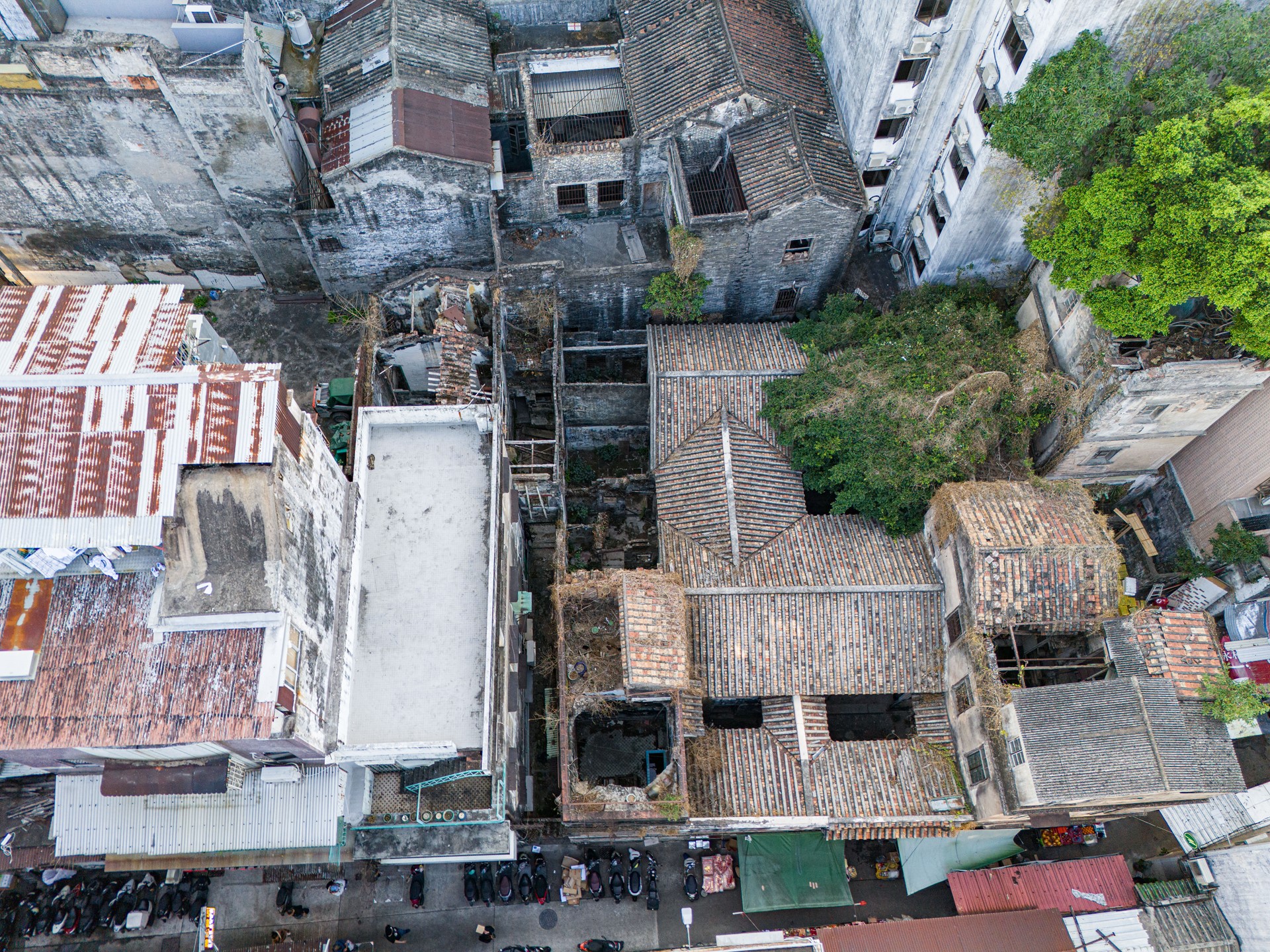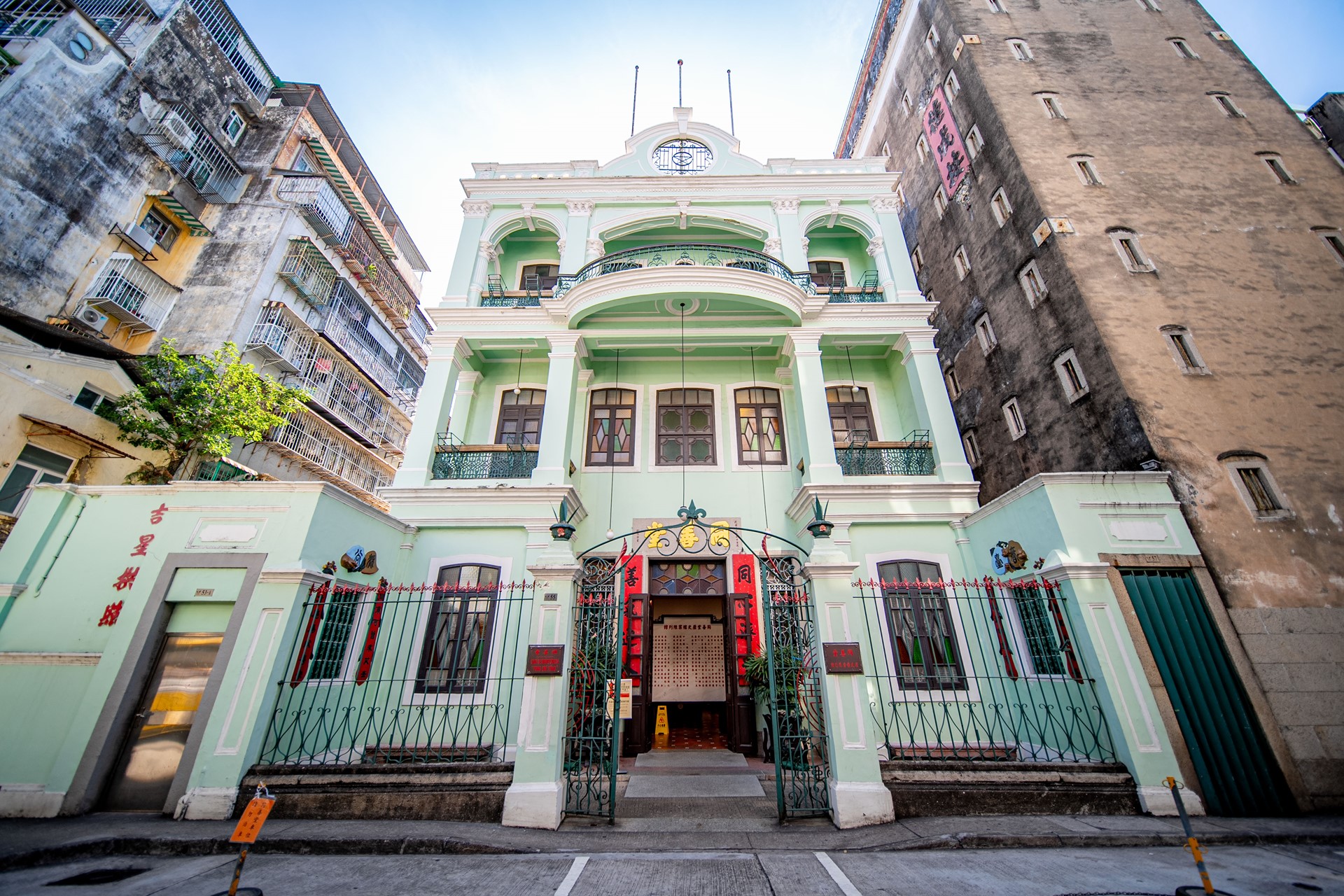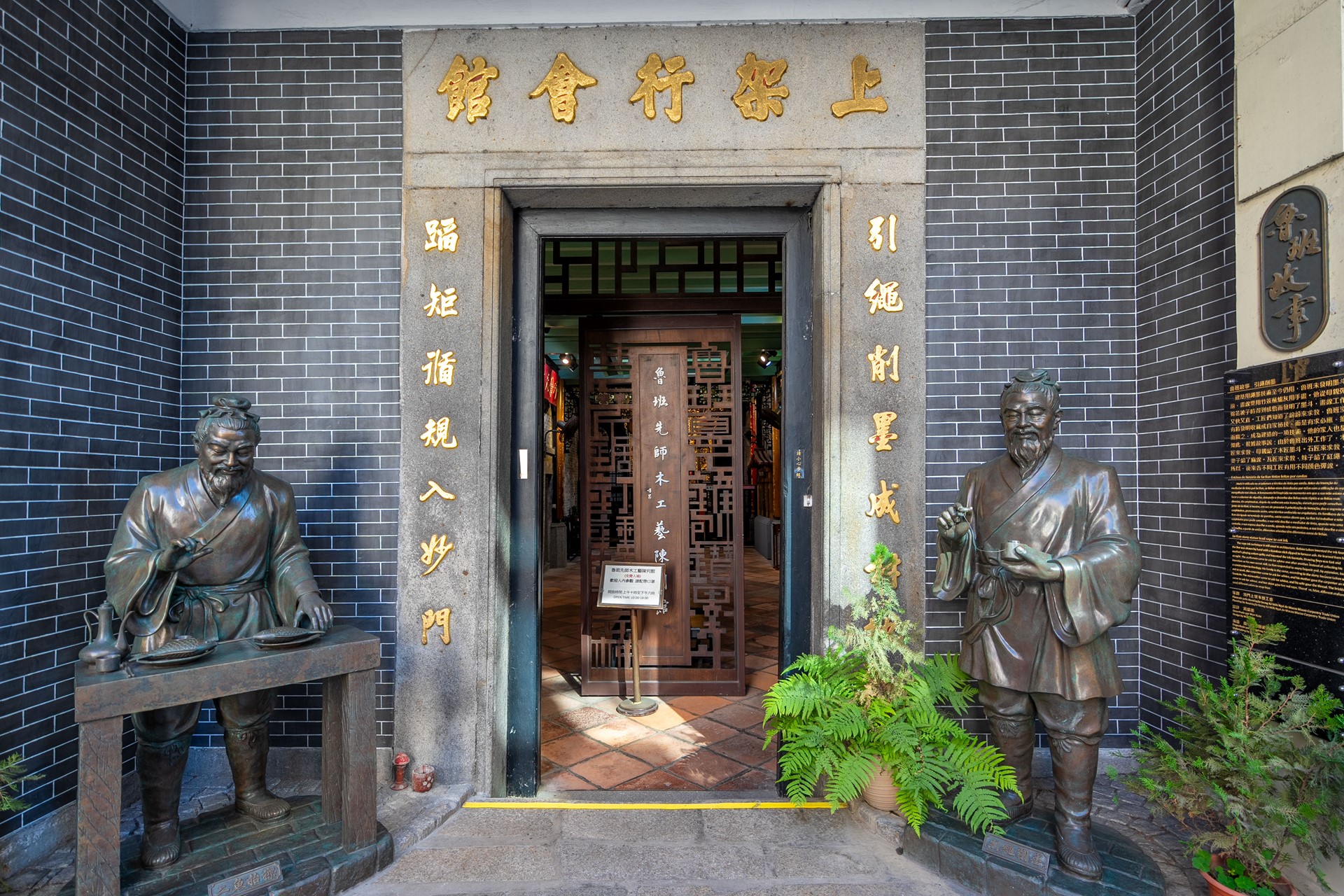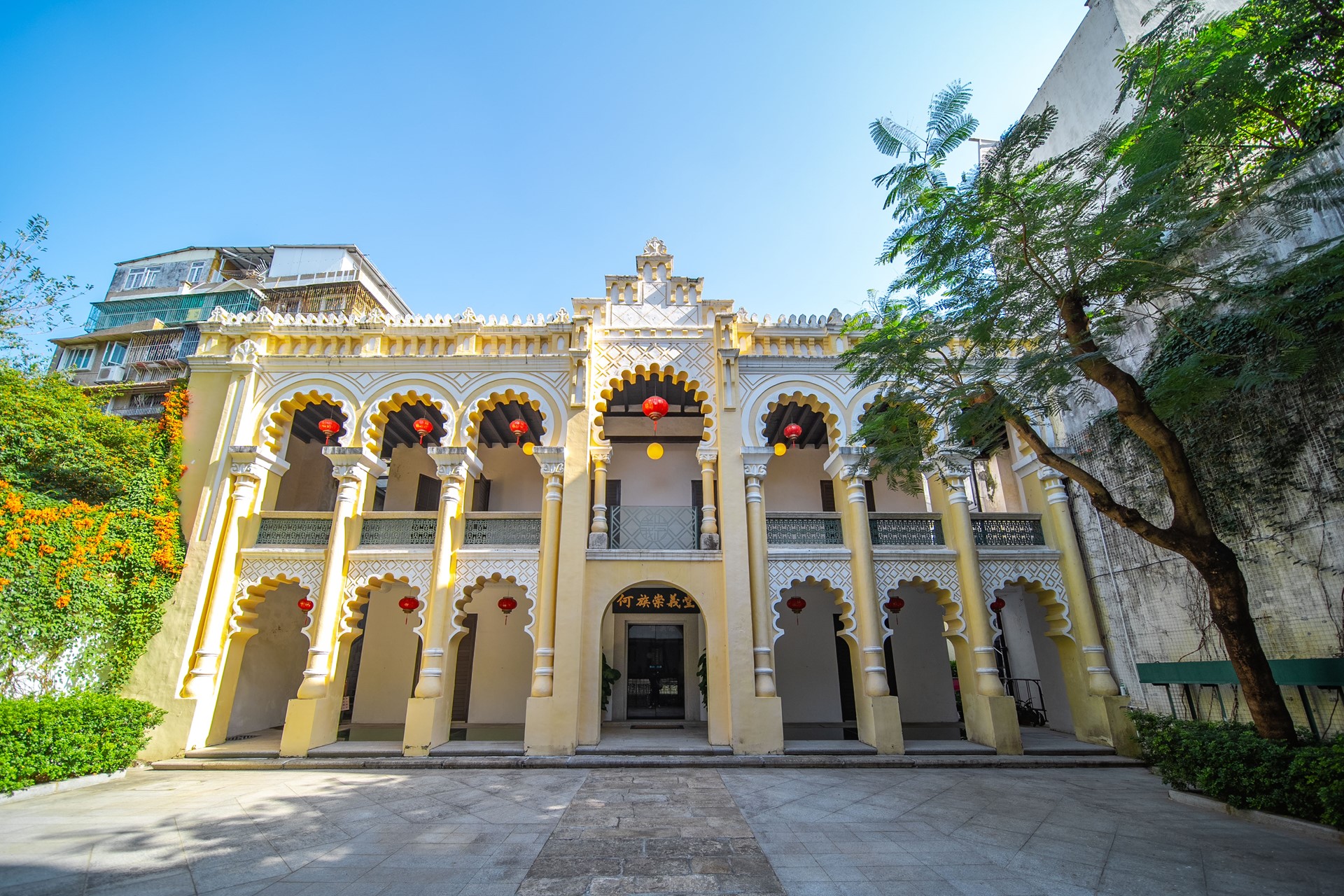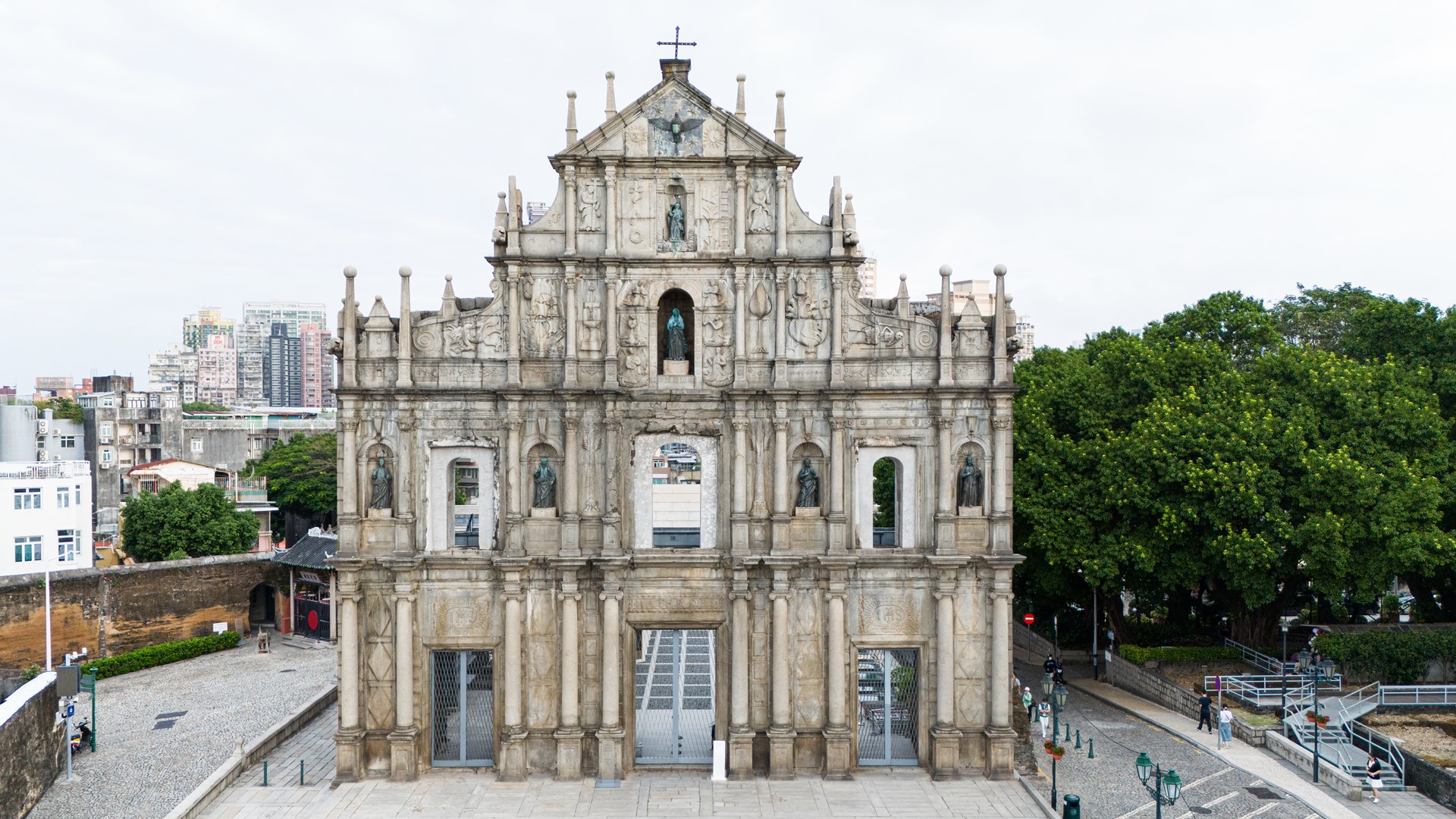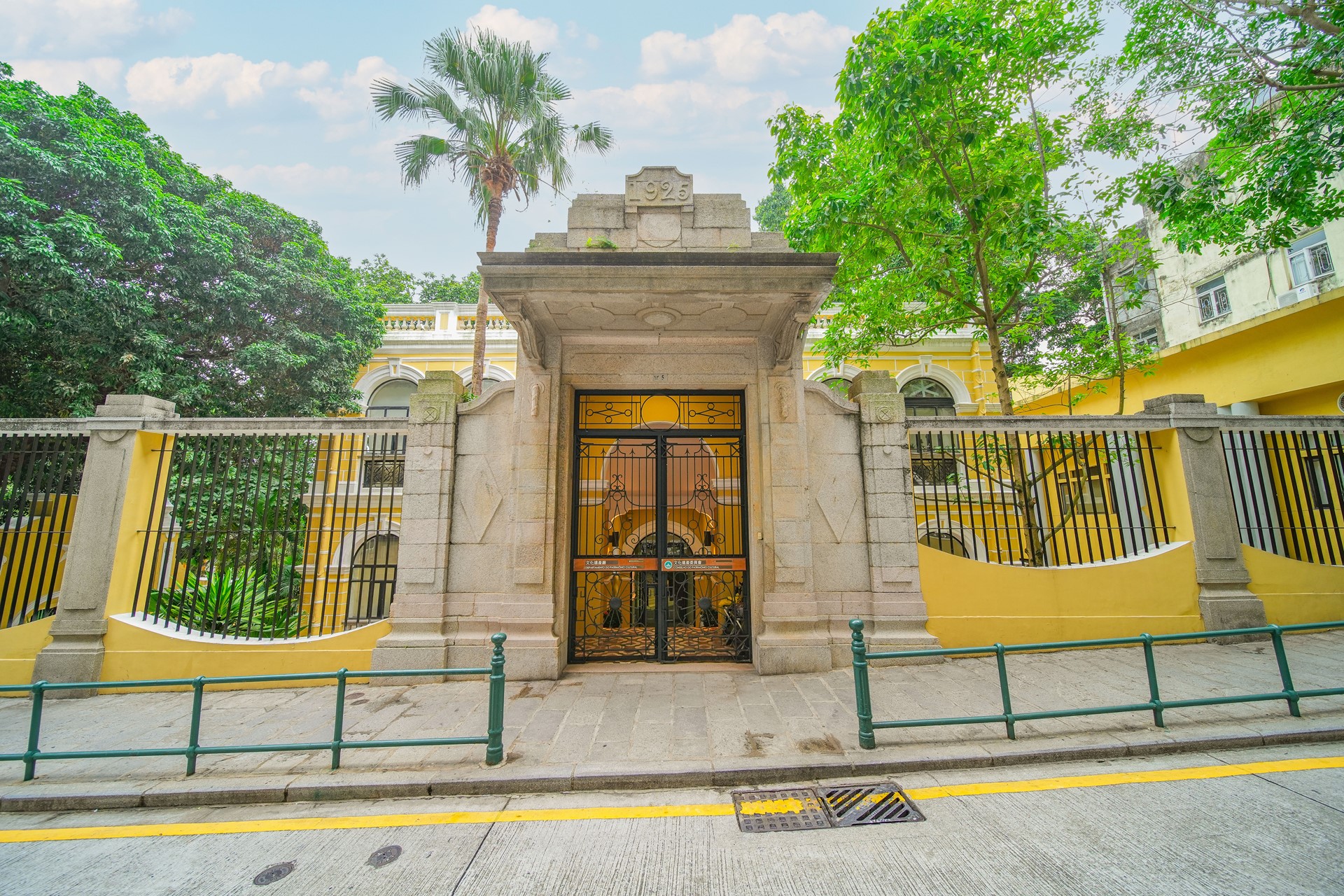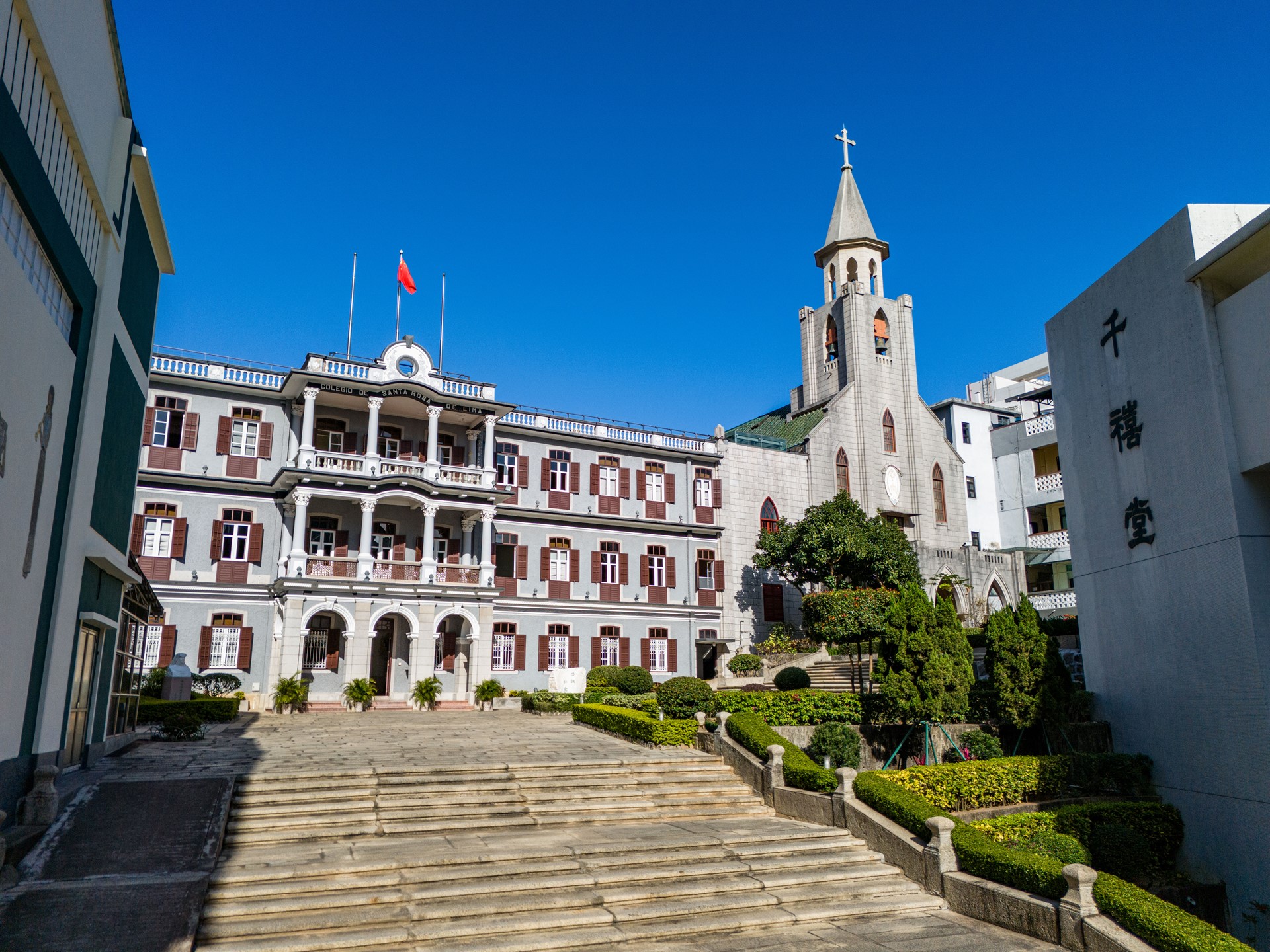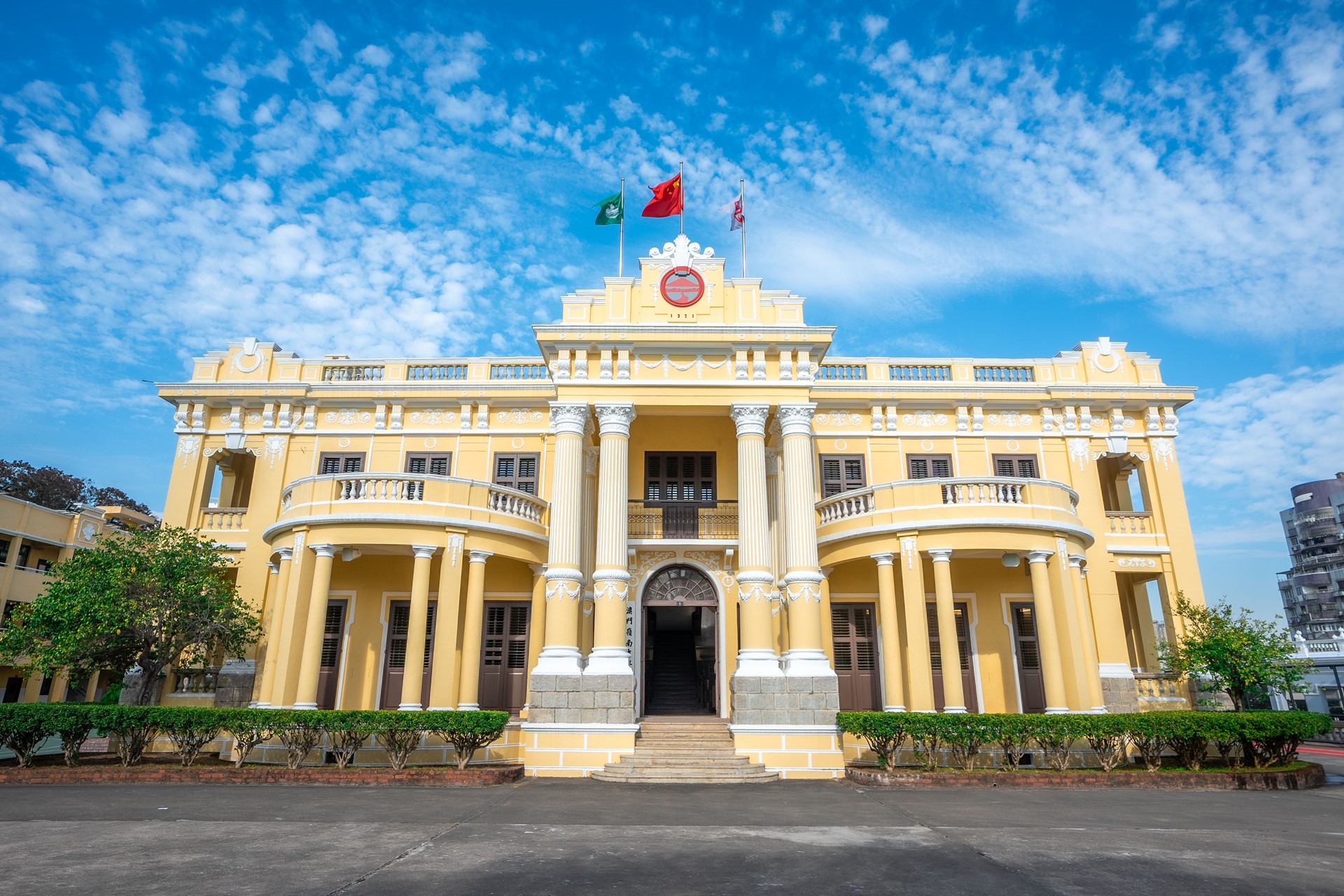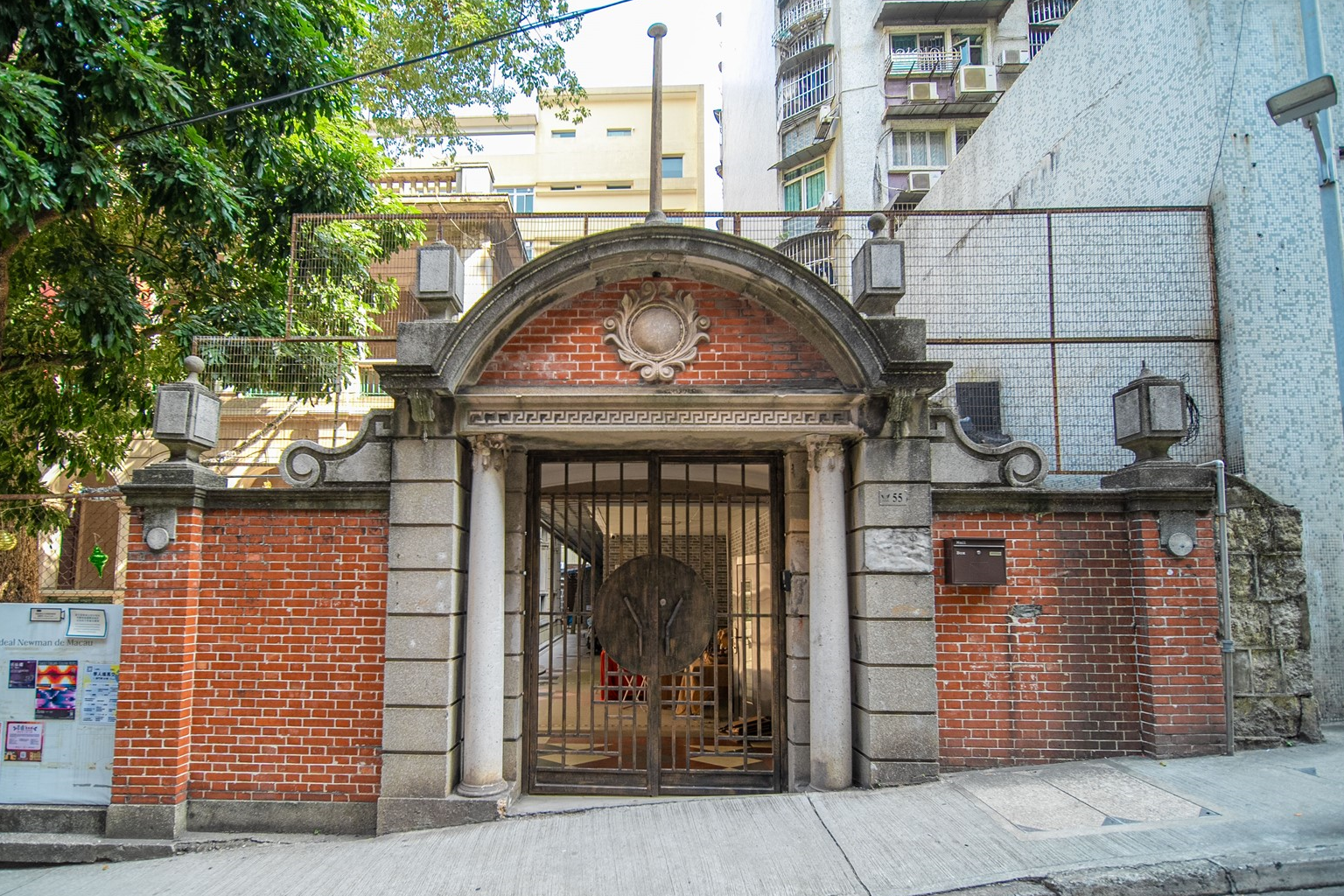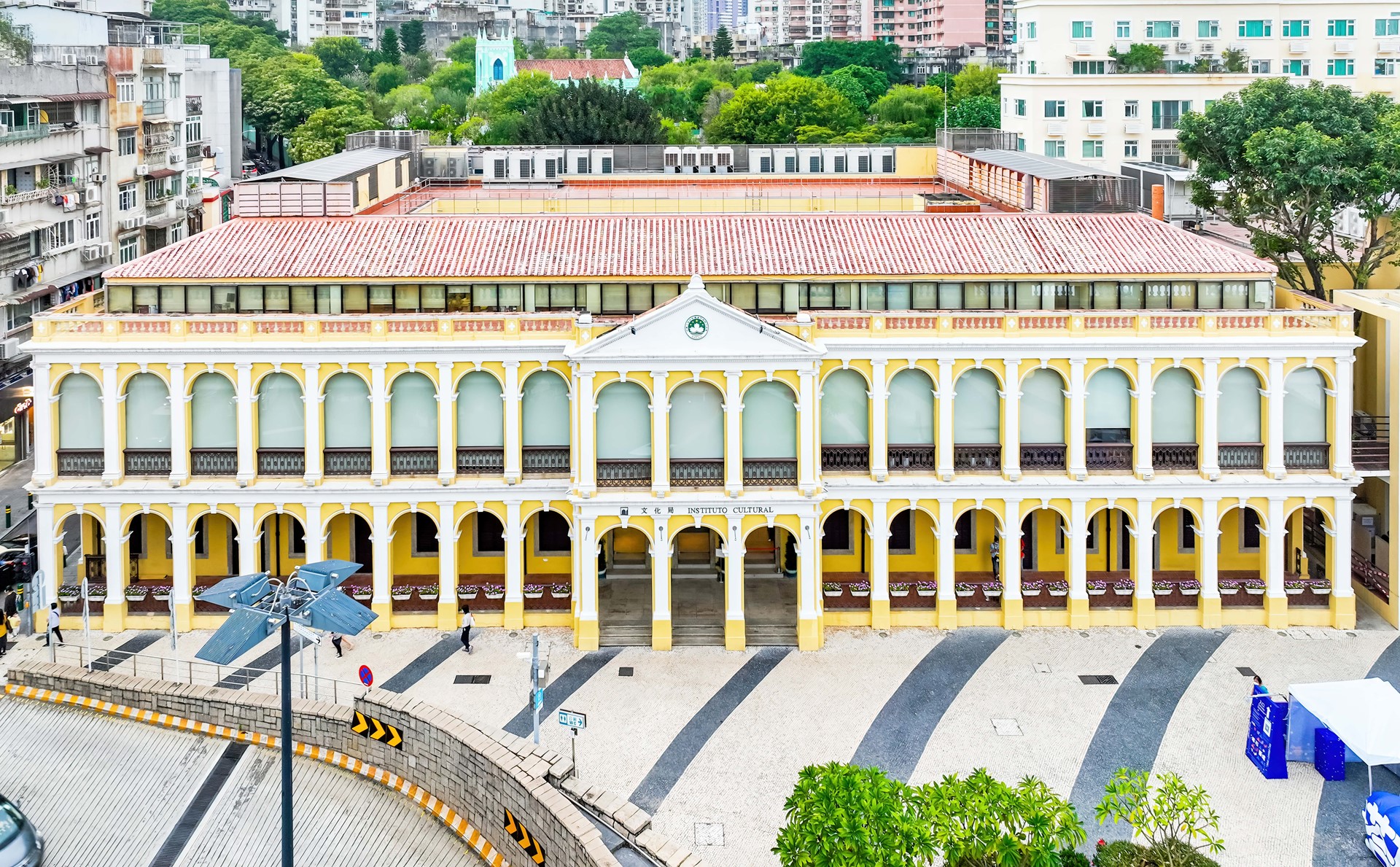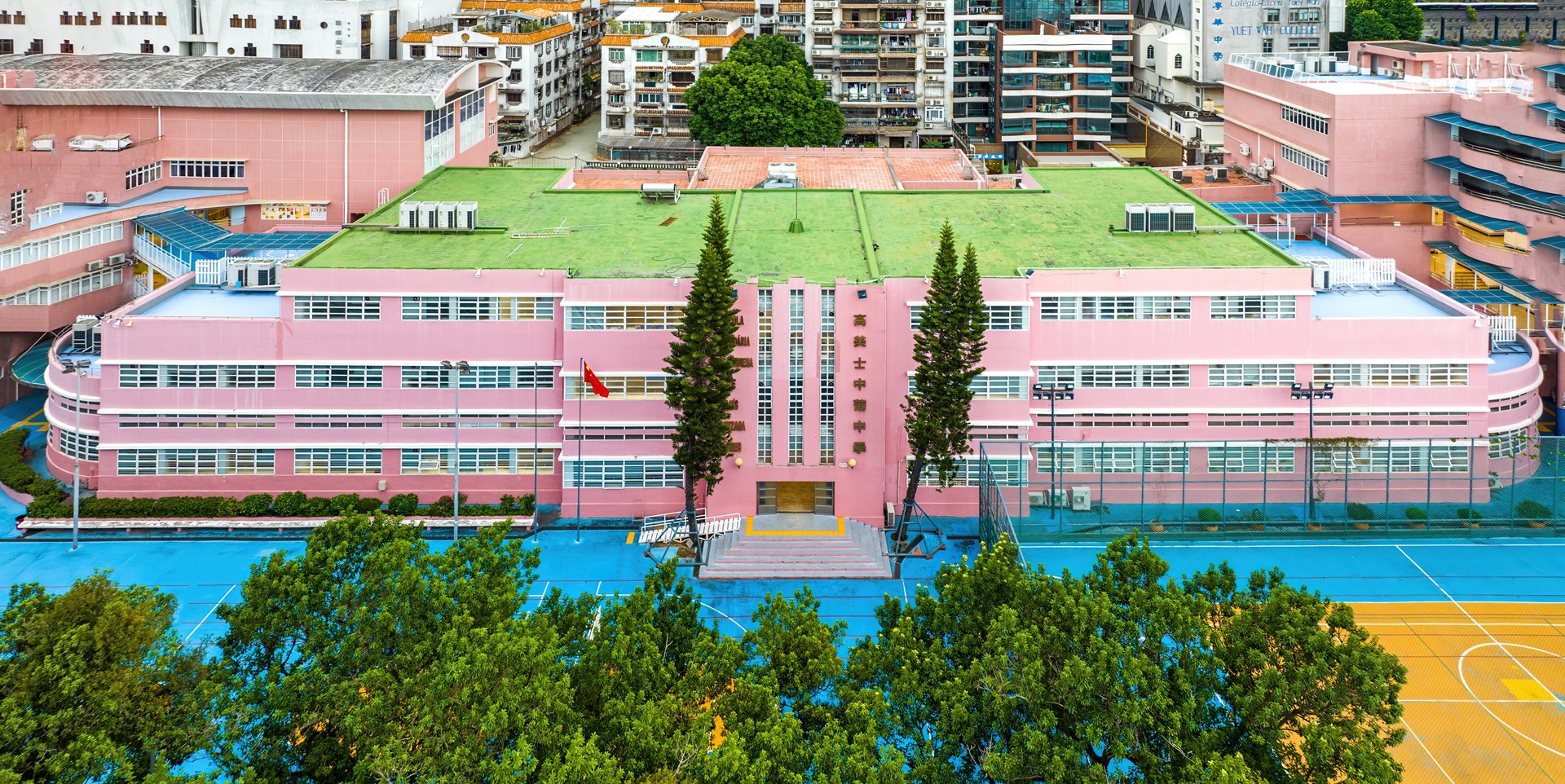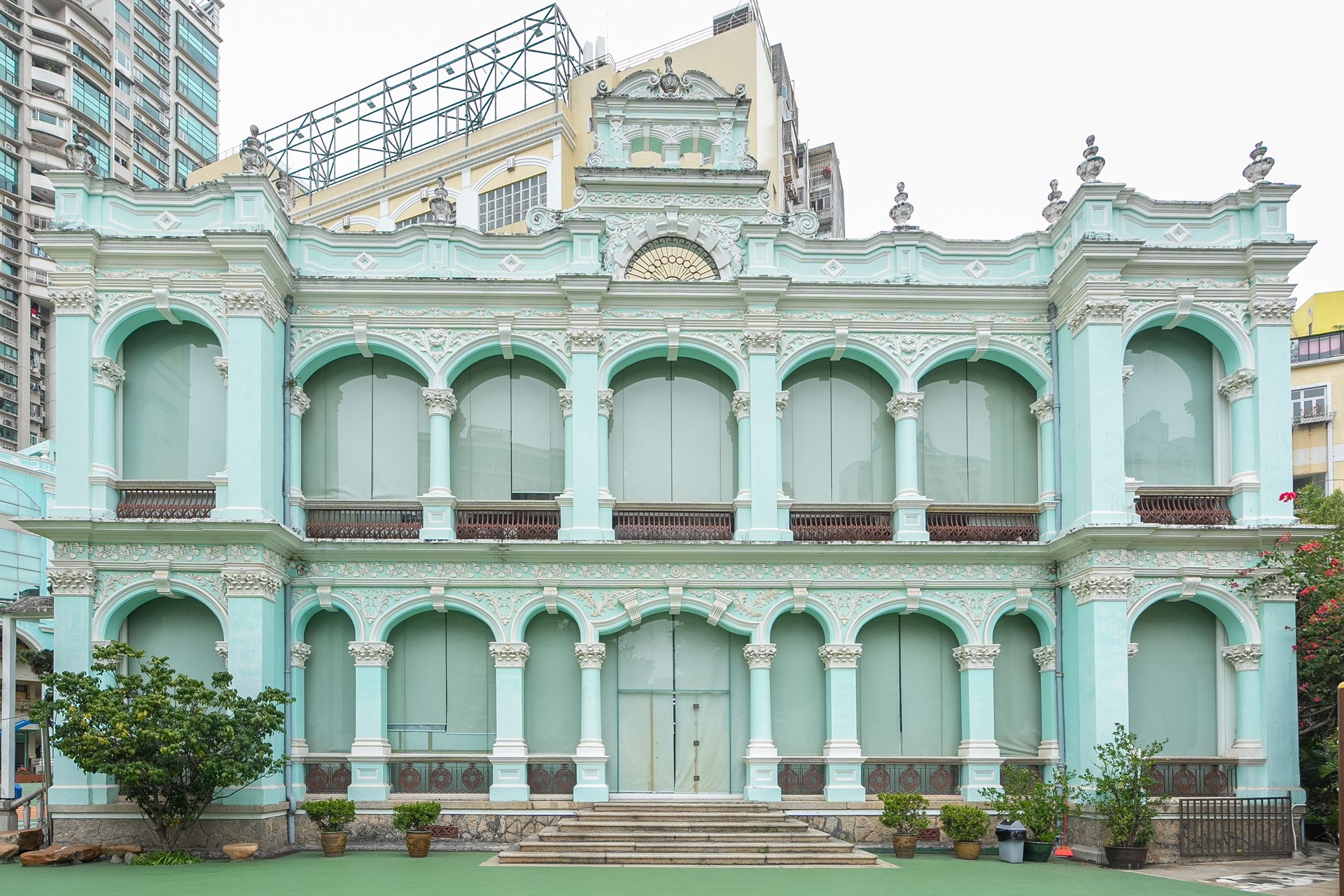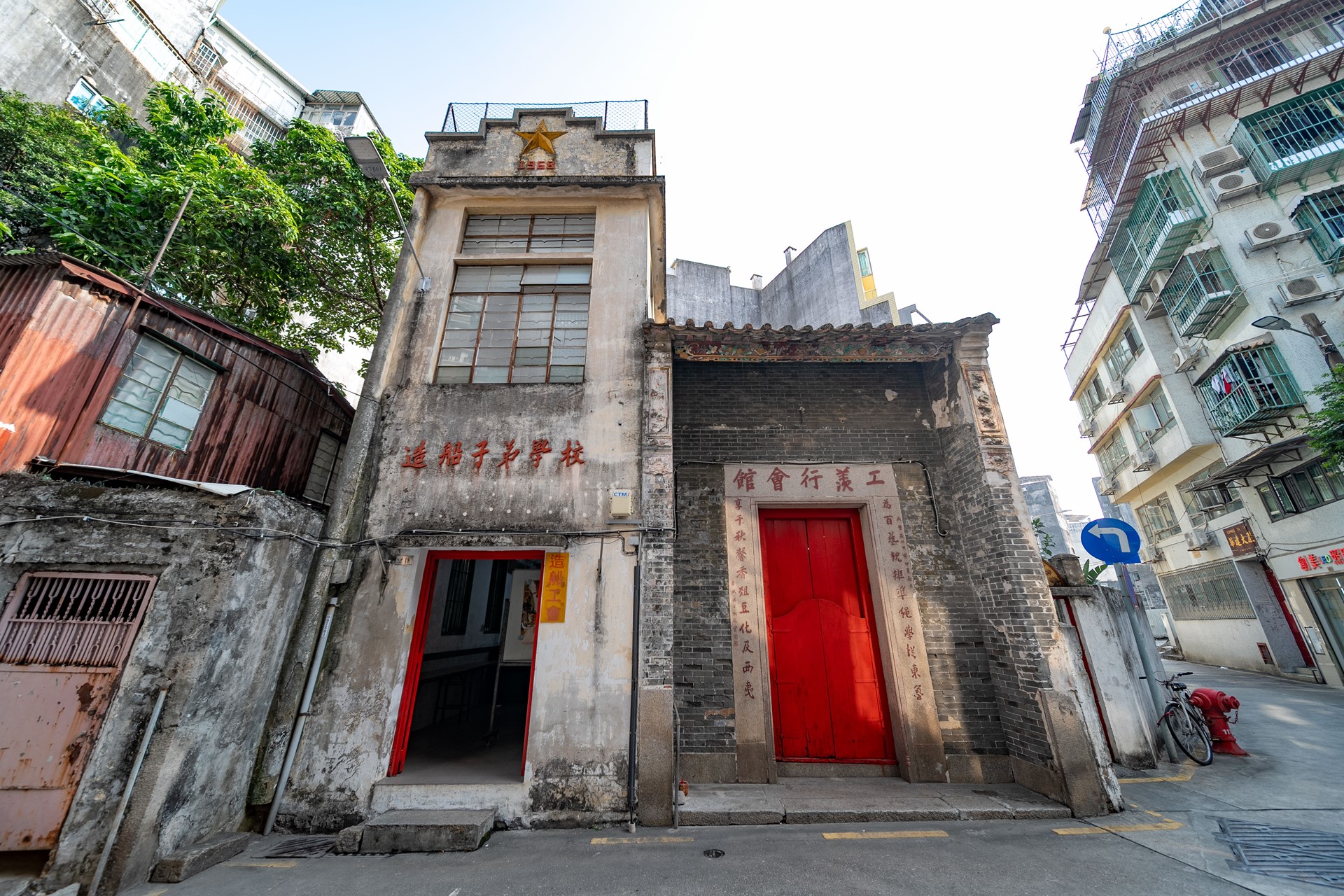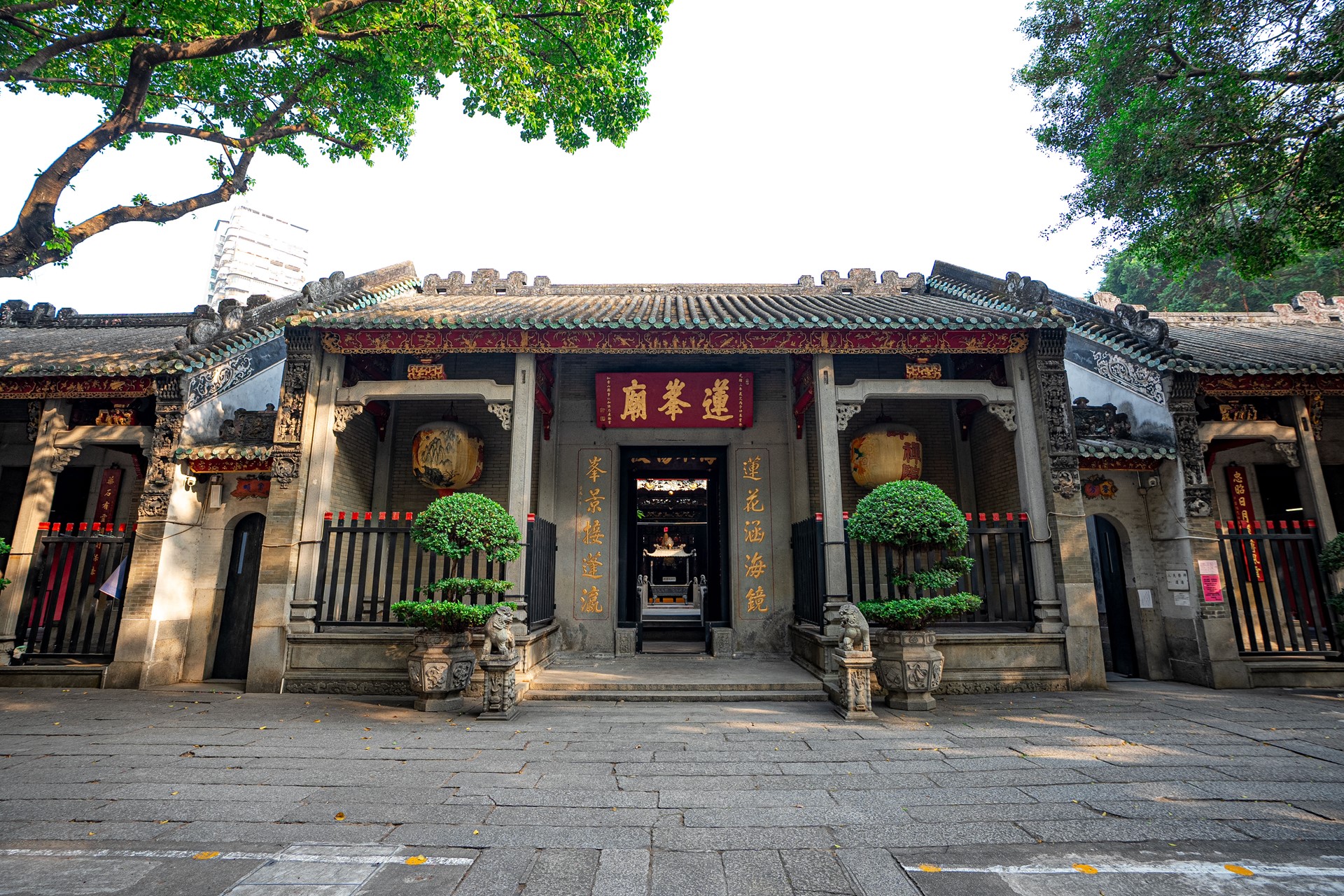Instituto Salesiano is located in St. Lawrence's Parish on the Macau Peninsula. Its building features an Art Déco style façade, with Shanghai plaster finishing. The façade, with a symmetrical design and rounded corners, characterized by prominent vertical markings, framing the windows, topped by a parapet wall decorated with geometric motifs. The building is designed to be simple and functional, making it a typical example of Art Déco architecture in Macao.
In 1772, the British East India Company rented a property of António José da Costa, a wealthy Macao merchant, in St. Lawrence's Parish in Praia Grande as a trading post, which is now within the boundaries of the current Instituto Salesiano. The property, known as “House of Sixteen Columns” due to the 16 columns built into its outer walls, was acquired by the Catholic Diocese of Macao in 1823. In 1906, at the invitation of Bishop João Paulino de Azevedo e Castro, the Salesians of Dom Bosco came to Macao to preach and establish schools, founding the ‘Orphanage of the Immaculate Conception’. In 1910, the Diocese of Macao allocated no. 16, Rua de S. Lourenço, the original site of “House of Sixteen Columns”, for the establishment of the School of Arts and Crafts of the Immaculate Conception.
The School of Arts and Crafts was a vocational technical school. It first established a crafts department that offered courses in carpentry, typesetting, printing, sewing and leatherwork as well as workshops for students to gain hands-on experience in order to cultivate specialized craft talents. Classes in Chinese, Mathematics and foreign languages were assigned according to students' educational levels.
In response to the evolving needs of the society, the school gradually phased out its traditional crafts programs in the 1960s-1970s, and introduced courses in electronics and electrical engineering, and established an English section in the secondary school.
Instituto Salesiano was a pioneer in the development of modern vocational technical education in Macao. The school’s evolution has consistently responded to the practical needs of the society, holding a unique historical significance in introducing craft learning and vocational education models. In 2006, it celebrated its 100th anniversary and began conceptual planning for campus expansion. The expansion project officially commenced in 2019 and is set to be completed in 2024.
